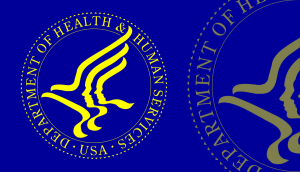WASHINGTON, D.C. — The U.S. Department of Health and Human Services (HHS) Office for Civil Rights (OCR) announced Monday that Harvard University violated Title VI of the Civil Rights Act of 1964 by showing deliberate indifference to ongoing harassment against Jewish and Israeli students. This violation spans 19 months, from October 2023 to the present, during which the harassment reportedly denied students critical educational opportunities and fostered a hostile campus environment.
Title VI prohibits entities receiving federal financial assistance from discriminating based on race, color, or national origin, which includes discrimination based on actual or perceived Jewish or Israeli identity or ancestry. Harvard and its affiliates received over $794 million in federal funding from HHS between fiscal years 2023 and 2025. The OCR’s investigation uncovered severe and pervasive harassment, including threats, intimidation, and vandalism. Physical violence was also documented, targeting Jewish and Israeli students, effectively blocking their access to campus facilities, classes, and extracurricular activities.
Background and Investigation Details
The investigation revealed that Harvard failed to meet several Title VI obligations. These include establishing clear policies to report and address discrimination, uniformly enforcing disciplinary measures, and applying restrictions to prevent recurring incidents in campus facilities. The findings cite numerous sources, including internal reports by Harvard’s Task Force on Combating Antisemitism and Anti-Israeli Bias, a U.S. Congressional investigation, and media coverage of harassment incidents on campus.
Paula M. Stannard, Director of the Office for Civil Rights at HHS, stated,
“Harvard’s public pledges to improve its disciplinary framework for harassment and misconduct are inadequate to meaningfully address these serious findings.”
The Notice of Violation issued by OCR is the second under this Administration to assess liability for race and national origin discrimination using a “deliberate indifference” standard.
Implications and Historical Context
This development follows a broader national effort to combat anti-Semitism, aligning with the Administration’s Joint Task Force to Combat Anti-Semitism, established under President Trump’s executive orders. The task force aims to address anti-Semitic harassment and violence nationwide, highlighting the federal government’s commitment to protecting civil rights on college campuses.
Historically, universities have faced scrutiny for their handling of discrimination cases. Harvard’s situation is reminiscent of past incidents where educational institutions were criticized for inadequate responses to racial and ethnic harassment. The current findings against Harvard underscore the ongoing challenges universities face in creating safe and inclusive environments for all students.
Expert Opinions and Forward-Looking Analysis
Experts in civil rights law emphasize the importance of institutional accountability in preventing discrimination. According to Dr. Lisa Feldman, a professor of law specializing in civil rights,
“Universities must not only have policies in place but also enforce them consistently to deter discriminatory behavior.”
The OCR’s findings suggest that Harvard’s existing measures were insufficient, highlighting the need for comprehensive policy reforms.
The move represents a significant step in holding educational institutions accountable for their role in fostering inclusive environments. As HHS stands ready to engage in discussions with Harvard, the university faces the challenge of implementing corrective measures to comply with Title VI obligations.
Meanwhile, the broader academic community watches closely, as the outcome of this case could set a precedent for how similar cases are handled in the future. The implications extend beyond Harvard, potentially influencing policy reforms at other universities grappling with discrimination issues.
Next Steps and Consequences
The HHS emphasized its commitment to working with Harvard to implement necessary corrective measures. As the university navigates this challenging period, it must balance addressing the OCR’s findings with maintaining its reputation as a leading academic institution. The resolution of this case will likely influence Harvard’s policies and practices moving forward, serving as a critical test of its commitment to fostering a safe and inclusive campus environment.
For ongoing coverage of this story and other significant developments, follow our updates on Google News and MSN.
 20 States Sue Trump Administration Over Medicaid Data Release
20 States Sue Trump Administration Over Medicaid Data Release Bucks County Woman Implicated in $1 Million Medicaid Fraud Case
Bucks County Woman Implicated in $1 Million Medicaid Fraud Case Bob Vylan Faces Backlash After Glastonbury Comments on Gaza Conflict
Bob Vylan Faces Backlash After Glastonbury Comments on Gaza Conflict Trump Announces Israel’s 60-Day Ceasefire in Gaza, Urges Hamas to Comply
Trump Announces Israel’s 60-Day Ceasefire in Gaza, Urges Hamas to Comply Pennsylvania Lawmakers Introduce Bill to Shield State from Federal Funding Cuts
Pennsylvania Lawmakers Introduce Bill to Shield State from Federal Funding Cuts